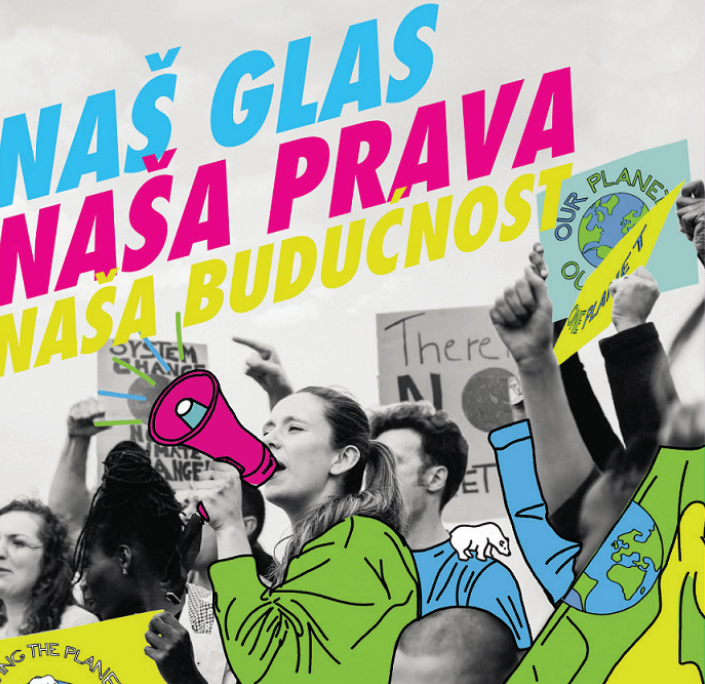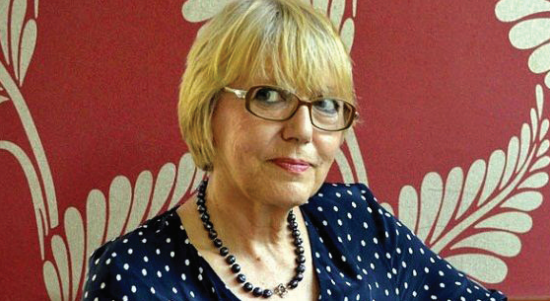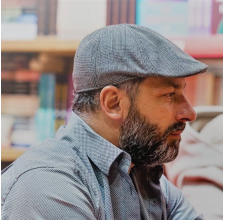Human Rights in Serbia: Subordinated to geostrategic deliberations
Sonja Biserko is a Serbian campaigner for human rights. She is the founder and president of the Helsinki Committee for Human Rights in Serbia. Biserko’s ongoing work for human
rights has included documenting the resurgence of nationalist sentiment that followed the war in Kosovo, Through active support for minority and refugee communities within
Serbia and Kosovo she has sought in particular to promote dialogue between Serbs and Albanians in this country.
Among some 140 other publications she has written about the Srebrenica genocide, the fall of Vukovar, the wars in the former Yugoslavia and war crimes and accounts of the trials
of Slobodan Milosevic and Vojislav Seselj. In 2005 she was one of 1000 women in the group 1000 Women for Peace nominated for the Nobel Peace Prize. On 8 May 2013, she
was appointed as a member of the United Nations human rights investigation into North Korea.
Human rights in the Balkans, as in Serbia, cannot be fully considered outside the political and social context and the consequences of the wars from the 1990s, which are still preventing the consolidation of the newly established states. The larger international context—the erosion of the liberal order—has brought about the erosion of universal values, and, as UN Secretary-General António Guterres warns, “human rights are under siege the world over.” On the occasion of Human Rights Day, Guterres said that the “Universal Declaration on Human Rights has been a global beacon—shining a light for dignity, equality and well-being, and bringing hope to dark places.”

Amid the disorientation and collapse of the socialist system of values (as well as in all the other post-socialist countries), religion was given a key role in the shaping of the new values. For religion is thought to be the spine that holds every traditional society together.
The frustration of the failed transition brought about a rejection of liberalism, individualism and human rights as ideologies. The ideology of human rights begins to be seen as an imperial project of western civilization, which is, essentially, rooted in the historical and social experience of the West. Serbia is, additionally, a special case because it has not drawn up a war balance for the 1990s nor has it relinquished its aspirations toward its neighbors.
As religion was given the dominant role in the public and the media, the positions of the Serbian Orthodox Church has also had a significant impact on the perception of the concept of human rights. Orthodox theologians do not relate affirmatively to the contemporary concept of human rights: it is seen as an import from the West, with its liberal values and individualism. It is seen as overly individualized and absolutized, and imposed on cultures, social and political environments which are different, as if it is universal in nature.
Dr. Zoran Devrnja, an assistant professor at the Faculty of Orthodox Theology in Belgrade, criticizes those who espouse a liberal-humanistic concept of human rights as not engaging in dialog with others, but instead foisting their concept on others, in such a way that the position of liberal humanism remains untouchable and unquestioned. For, he says, the contemporary moment in the world tells us that this needs questioning.
The theological shaping of public life in Serbia began after 2000, when Orthodoxy, with political pretensions, began to shape the public, social space, thereby jeopardizing the rights of others to their own identity. Orthodoxy rejects the secular values of civil society—democracy, civil society, pluralistic discourse, secular and religious tolerance and individual human rights.
Meanwhile, Serbia is one of the forty-seven members of the Council of Europe, and within this framework the government ratified a whole series of the highest international standards of human rights, including the European Convention about Human Rights. However there is no political will to respect the standards to which Serbia committed as a state. There is no interaction between the state, the civil sector, the citizens and the media which would be a precondition to full application of the standards of human rights.
The pro-European orientation of Serbia since 2000 has never been formally brought into question. In the first years of the transition, the vast majority of citizens supported this orientation. However over the last years the mood among citizens for joining the European Union has been gradually diminishing. According to the most recent research, 90% of the citizens of Serbia believe that Russia champions Serbian interests (primarily in Kosovo) and is the most generous donor, though it is not even among the top ten donors.
Serbia is still officially committed to membership in the EU, though it has become increasingly clear that Serbia is dragging its feet regarding the reforms required for membership. After the October changes, the civil sector gained momentum and served as a significant corrective and promoter of democratic values. However all these initial results were undone by the arrival of the Serbian Progressive Party, the media were shackled, the civil sector marginalized, and all independent regulatory mechanisms were rendered meaningless.
Paradoxical, however, is the fact that the current prime minister is not only a woman, but a member of the LGTB community. The Pride Parade is held every year, with a heavy police presence, which means that the society has not changed its attitude about toward the LGTB movement. This community is still under great pressure and often exposed to violence. The position of women is also in regression (though this session of Parliament has the largest number of women members). Re-patriarchization has made major strides. In all research, young people strongly endorse conservative positions regarding the position of women, as well as the LGTB community. Ethnic distance is also very pronounced, contributing to the narrative of the political elites with media support which dehumanizes and vilifies all their neighbors. This feeds tensions and makes any fundamental normalization of relations in the region impossible.
The basic problem of Serbia is that it opted for an ethnic state, not a civil state, which means that the ideology of ethnic nationalism is dominant. Still ascendant is the ideology that began the aggression on Yugoslavia, the “Liberation and Unification of the Serbs.” Such a concept of state excludes the minorities which are languishing on the margins of society, the existing legal framework notwithstanding.
Not only is Serbia persisting in its failed project (most recent is the example of Montenegro), but it is making declarations and strategies which only reinforce this orientation. Hence the Charter on the Serbian Cultural Space stated that the strategic starting point for Serbian cultural policy is based on the conviction that, before a broader integration, the first, necessary step is to strengthen cohesion within the Serbian cultural space. And this is only one step away from declaring the unification of all Serbs, as was the case in the 1990s.
The Charter sets out as a priority the harmonization of activities and measures of strategic interest for Serbian culture and its mutual interconnection, primarily with the Republika Srpska (they signed the Charter together), then with the Serbian people of Montenegro, Macedonia, Croatia, and with the Serbs in the greater region and the diaspora.
On 24 December 2019, Aleksandar Vulin, the minister of defense, presented the Strategy for Defense of the Republic of Serbia and the Strategy of National Security, which, as he said, protect in the best way possible his national and defense interests; these are preservation of sovereigny and territory coehsion, military neutrality, concern about the Serbian people living beyond the borders of Serbia, European integration and an efficient rule of law. The documents mention only one priority for foreign affairs —the Republika Srpska and its preservation. The document also states that “Kosovo independence is absolutely unacceptable.”
Serbia did not define its basic objectives nor its foreign policy nor on which values it would rest. Instead of realistically surveying its possibilities, Serbia is conducting an inconsistent foreign policy, characterized by contradictions and confusing priorities.
The lack of a clearly defined strategy is the source of the problem, both in terms of Serbia’s path to Europe, and its relations with its neighbors. Such a condition is reflected not only in the disorientation of the state, but in its conditionality with certain external circumstances and actors.
So without powerful support from the EU, the Western Balkans and every individual country, there is the threat of further regression which creates a favorable space for the involvement of other actors, especially Russia. All this significantly contributes to further erosion of human rights and liberal values.







